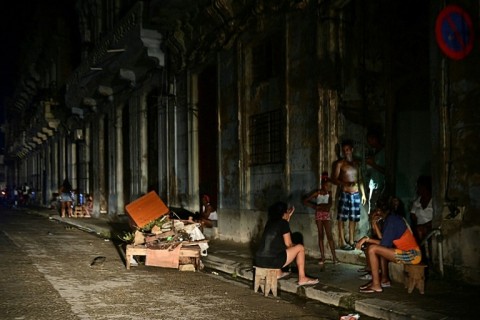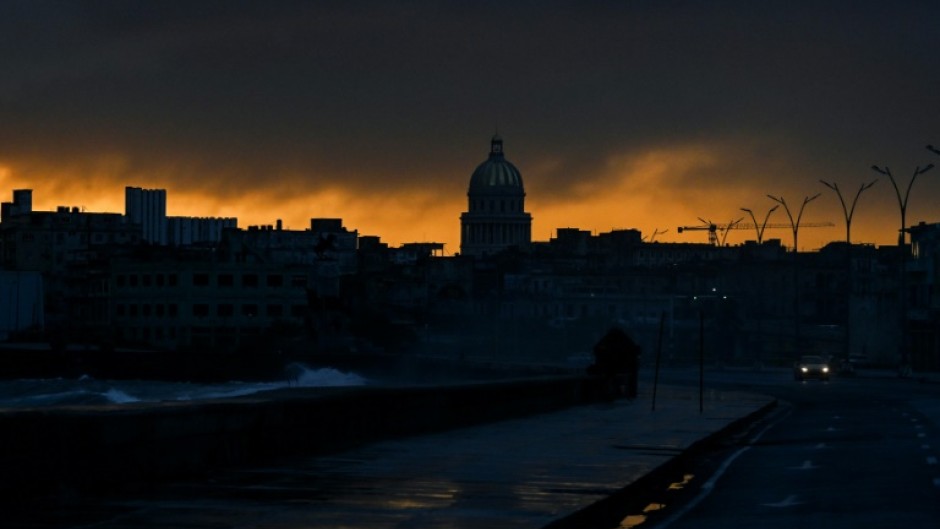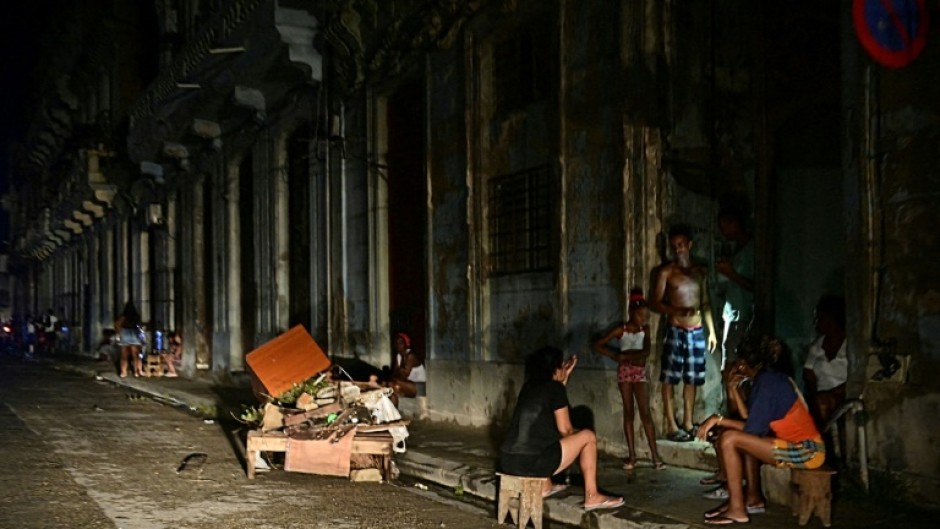HAVANA- Electricity has been restored to half of Havana, the Cuban capital's power company reported Monday, four days after the start of a nationwide blackout that the authorities have struggled to address.
Power went out for the communist island's 10 million people on Friday after the collapse of the nation's largest power plant crippled the grid.
The government has said that electricity is expected to be restored to most of the country by the end of Monday.
"Around 50% of clients" now have power, Havana's electricity company said in a report published by state-run news portal Cubadebate.
Amid concerns of instability in a country already battling sky-high inflation and shortages of food, medicine, fuel and water, President Miguel Diaz-Canel warned Sunday that his government would not tolerate attempts to "disturb public order."
In July 2021, blackouts sparked an unprecedented outpouring of public anger, with thousands of Cubans taking to the street and chanting slogans including "Freedom!" and "We are hungry."
Cuba was still bathed in darkness on Sunday when Hurricane Oscar made landfall in its eastern part at 5:50 pm local time as a Category 1 storm.
It weakened into a tropical storm as it moved inland, the US National Hurricane Center said, whipping up waves up to four meters high along the eastern coast.
Roofs and the walls of houses were damaged, and electricity poles and trees felled, state television reported.
Decrepit infrastructure -

The power grid failed in a chain reaction Friday due to the unexpected shutdown of the biggest of the island's eight decrepit coal fired power plants, according to the head of electricity supply at the energy ministry, Lazaro Guerra.
Power was briefly restored Sunday to a few hundred thousand inhabitants before the grid failed again, according to the national electric utility UNE.
Authorities have suspended classes and business activities until Wednesday, with only hospitals and essential services remaining operational.
To bolster its grid, Cuba has leased seven floating power plants from Turkish companies and also added many small diesel powered generators
Diaz-Canel blamed the situation on Cuba's difficulties in acquiring fuel for its power plants, which he attributed to the tightening, during Donald Trump's presidency, of a six decade long US trade embargo.
But the island is in the throes of a broader economic malaise the worst economic crisis, according to experts, since the collapse of the Soviet Union, which heavily subsidized Cuba and stationed troops there as vital element of its Cold War strategy against the United States.
"Cubans are tired of so much.... There's no life here, (people) can't take it anymore," said Serguei Castillo, a 68 year old bricklayer.


